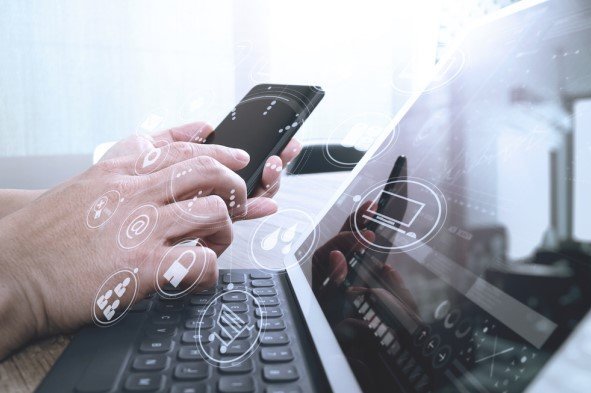It’s a common problem in our daily talks: we’re so busy thinking about what to say next that we miss what’s being said right now. This habit of listening to reply, not to understand, can create misunderstandings and weaken our connections. But by learning to truly listen, you can transform your conversations, build stronger relationships, and make sure everyone feels heard and valued. This simple shift can make a huge difference in your personal and professional life.
Why Listening to Understand is More Than Just Hearing
Many people think hearing and listening are the same, but they are very different. Hearing is the simple, automatic act of your ears picking up sound. It’s a passive process that doesn’t require any effort. You might hear traffic outside or music in a store without really paying attention to it.
Listening, on the other hand, is an active skill. It requires you to focus your attention, process the information, and try to understand the meaning behind the words. True listening involves comprehending the speaker’s message, emotions, and point of view. It’s about engagement, not just reception.
To better see the difference, consider this simple breakdown:
| Hearing | Listening |
| A passive, physical process | An active, mental process |
| Requires no effort | Requires focus and concentration |
| Involuntary and automatic | A voluntary choice and skill |
| Registering sound | Understanding meaning |
When you shift from just hearing to actively listening, you move from a superficial exchange to a meaningful connection. This skill is the foundation of effective communication and stronger relationships.
Common Roadblocks to Truly Hearing Someone
Even with the best intentions, you might find it hard to listen effectively. Several common barriers can get in the way, and recognizing them is the first step to overcoming them. These roadblocks can be divided into two main categories: things happening around you and things happening inside your own head.
External distractions are often the easiest to spot. This includes a noisy room, a phone buzzing with notifications, or other people interrupting your conversation. When your environment is chaotic, it’s nearly impossible to give someone your full attention. Minimizing these distractions by finding a quiet space or putting your phone away shows respect and helps you focus.
More often, the biggest barriers are internal. Your own thoughts, feelings, and worries can create a lot of mental noise. You might be preoccupied with a personal problem, thinking about your to-do list, or already forming a judgment about what the speaker is saying. This internal chatter is what drives the habit of listening to reply, as you’re busy with your own thoughts instead of engaging with theirs. Learning to quiet your mind and set aside your own agenda is crucial for genuine listening.
The Damaging Effects of Listening Only to Reply
When you prioritize your response over understanding, the consequences can be significant and harmful. This communication style can slowly erode the quality of your personal and professional relationships, leading to a host of problems that could have been avoided.
The most immediate impact is miscommunication. When you’re not fully listening, you miss key details, nuances, and the emotional tone of the conversation. This can lead to simple misunderstandings that quickly escalate into serious conflicts. When people feel unheard or misinterpreted, frustration builds, and resolving issues becomes much more difficult for everyone involved.
Over time, this pattern destroys trust and rapport. If you consistently signal that your own voice is more important, others will feel that their thoughts and feelings are devalued. This makes people hesitate to share openly, fearing they will be dismissed or talked over. Colleagues may stop offering innovative ideas, and friends or family may withdraw emotionally. This loss of trust creates a cycle of poor communication that can leave you feeling isolated and disconnected from those around you.
Simple Techniques to Become an Active Listener
Improving your listening skills doesn’t happen overnight, but you can start by practicing a few simple and powerful techniques. Active listening is a set of skills designed to help you focus completely on the speaker, understand their message, and show you are engaged.
One of the most important aspects of active listening is to be fully present. This means putting away distractions, making eye contact, and offering non-verbal cues to show you’re paying attention.
To practice active listening during your next conversation, try to:
- Reflect and Summarize: Briefly paraphrase what the speaker said in your own words. You could say something like, “So, if I’m understanding correctly, you’re feeling overwhelmed by the project’s deadline.” This confirms your understanding and shows you are listening carefully.
- Ask Clarifying Questions: Instead of making assumptions, ask open-ended questions to get more detail. For example, “Can you tell me more about what that was like?” or “How did that affect you?”
- Avoid Interrupting: Give the speaker space to finish their complete thought before you jump in with your own. Pausing for a moment after they finish can also encourage them to share more.
These techniques not only help you absorb more of the message but also make the speaker feel respected and validated. They are simple tools that can dramatically improve the quality of your interactions.
The Power of Empathy in Meaningful Conversations
Effective listening goes beyond just understanding words; it involves understanding people. This is where empathy plays a crucial role. Empathy is the ability to step into someone else’s shoes and understand their feelings and perspectives. When you listen with empathy, you connect on a deeper, more human level.
Approaching a conversation with the goal of understanding the other person’s emotional experience changes everything. It shifts the focus from a debate or a transaction to a shared moment of connection. You start listening for the feelings behind the words, which helps you respond with more compassion and care. This fosters an environment of trust where people feel safe enough to be vulnerable and honest.
Building stronger connections is a natural result of empathetic listening. When people feel truly seen and heard, a foundation of mutual respect is built. This respect is the bedrock of any healthy, lasting relationship, whether it’s with a partner, a friend, or a coworker. By showing genuine interest in others’ experiences, you create a positive cycle of communication that promotes collaboration, reduces conflict, and makes every interaction more meaningful.
How to Create an Environment for Open Dialogue
Fostering open dialogue requires creating a space where people feel safe and respected enough to share their true thoughts and feelings. Your actions and attitude play a huge part in setting this tone. It starts with being approachable and non-judgmental in your words, tone, and body language.
When you want to encourage others to speak up, actively invite their input. Ask open-ended questions that can’t be answered with a simple “yes” or “no.” Validate their contributions, even if you don’t agree with them, by saying things like, “That’s a really interesting point,” or “Thank you for sharing that.” This simple acknowledgment reinforces that their perspective is valued.
Patience and practice are key. By consistently showing genuine interest and avoiding interruptions, you build a reputation as someone who is safe to talk to. This approach not only improves your relationships but also enriches your own understanding by exposing you to a wider range of ideas and experiences.
Frequently Asked Questions
What does it mean to listen to reply instead of to understand?
This common communication habit is when you focus on preparing your own response while someone else is still talking. Instead of absorbing their message, you are busy with your own thoughts, which often leads to misunderstandings and superficial conversations.
How can I improve my listening skills in daily conversations?
To become a better listener, practice giving the speaker your full attention by putting away distractions. Use non-verbal cues like nodding, avoid interrupting, and try to reflect back what you heard to ensure you understood it correctly.
What are the negative effects of not listening to understand?
Failing to listen properly can cause miscommunication, unnecessary conflicts, and a loss of trust in relationships. People may feel unheard and devalued, which can make them less willing to share openly with you in the future.
Can better listening really improve my personal relationships?
Absolutely. When you listen to understand, you build empathy and a stronger emotional connection. This fosters mutual respect, helps you resolve conflicts more effectively, and creates a foundation of trust where open and honest communication can thrive.






Leave a Comment